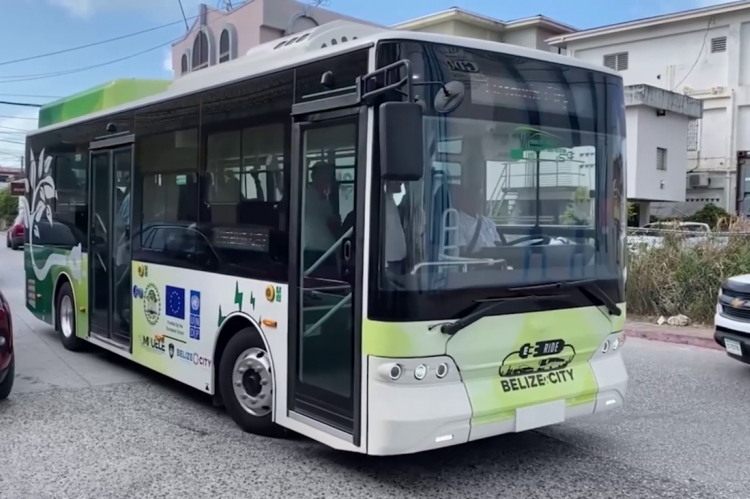E-Buses: A Comfort Too Costly for Belize City?
By: Omar Silva
Editor. National Perspective Bz DIGITAL 2024
Belize City, Wednesday 11th September 2024
The Belize City Council's introduction of two electric buses (e-buses) was met with high hopes for a cleaner, more efficient public transport system. The buses, equipped with modern comforts such as air conditioning and WiFi, were hailed as the future of urban transportation, promising an eco-friendly alternative to the traditional gas-guzzling city buses. However, months into the experiment, a glaring question remains: Is the cost of riding these e-buses too high for the average commuter?
At $3 per short stop trip, the e-buses are 50% more expensive than the traditional buses, which charge only $2. This might seem like a small difference on paper, but for the everyday Belizean who relies on public transport, an extra dollar per ride quickly adds up. With some commuters making multiple trips per day, the higher fare can become a serious burden, and it’s already showing its impact.
Despite the Council’s figures boasting $33,000 in revenue over a five-week period, my own observations tell a different story. I have personally monitored these buses throughout the day and rarely seen more than six to ten passengers at a time. The low ridership raises serious concerns about whether these buses are actually as profitable as officials suggest. If the buses are empty or running far below capacity, how long before the true costs begin to outweigh the revenues?
Breaking it down, the $33,000 revenue over five weeks translates to $16,500 per bus, or roughly $550 per day per bus. But after paying the driver and municipal assistant a combined $100 per day, the actual daily revenue is reduced to $450 per day. When factoring in additional costs such as electricity, maintenance, and administrative expenses, the supposed profit quickly shrinks. The glossy $33,000 figure starts to look much smaller when you account for the real costs of running these buses.
In other Central American countries, municipal city buses charge far less than what we’re seeing in Belize City. In places like Mexico and Guatemala, public transport is priced in a way that makes it affordable for everyone—from students to workers and seniors. This keeps the buses full and the system running efficiently. Why then, in Belize City, do we expect people to pay a premium for basic transportation services? Comfort should not come at the cost of accessibility.
The Belize City Council must go back to the drawing board. The current pricing structure, while it may temporarily cover operating costs, is excluding a large portion of the population that cannot afford to pay more for their daily commute. A higher price point for cleaner, electric transportation only makes sense if it actually attracts a significant number of riders—something that is clearly not happening.
If the Council truly wants to increase ridership and make the e-bus project viable, they must consider reducing the fare. Lowering the cost to match or even undercut the traditional buses could encourage more people to choose the e-buses, especially given the superior comfort they offer. Increased ridership would not only help cover operating costs but could also justify future investments in more buses or expanded routes.
A more affordable fare structure would ensure that the entire city can benefit from cleaner, more efficient transportation—not just those who can afford to pay more. And it’s important to remember that an effective public transport system is a public service, not a luxury.
In an age where cities around the world are making public transportation more accessible and environmentally friendly, Belize City must not be left behind. Our municipal leaders must put the public interest first. It’s time to rethink the pricing of the e-buses and bring these vehicles into line with the needs—and wallets—of the everyday Belizean.
If City Hall doesn’t act now, they risk turning the e-buses into little more than empty, costly showcases, when they could be a transformative step towards sustainable urban living. The ball is in their court: make these buses affordable, or watch this green dream fade into an unsustainable burden on the city’s finances.
- Log in to post comments

